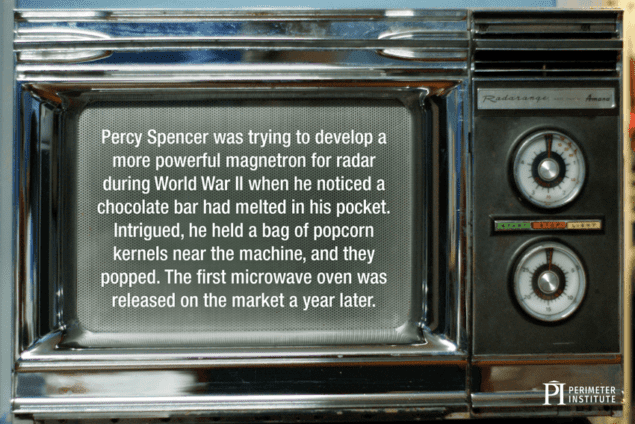
By Hamish Johnston
“In the fields of observation, fortune favours the prepared mind,” is a quote attributed to Louis Pasteur and it encapsulates the role of luck in scientific investigation. The Perimeter Institute for Theoretical Physics in Canada has put together a list of eight scientific breakthroughs that benefited from a little luck. Examples include Ernest Rutherford and colleagues measuring alpha-particle backscattering when they were really interested in how the particles travelled through the target – which resulted in the discovery of the atomic nucleus. But my favourite is how the microwave oven was invented, as described above.
Airport runways are named according to their magnetic bearings and this becomes a problem over time because the Earth’s magnetic poles are changing position. Over at Wired, Alex Davies explains why Wichita Eisenhower National Airport has been ordered to change the names of its three runways from 1L/19R, 1R/19L and 14/32 to 2L/20R, 2R/20L and 15/33, respectively. There’s much more about why these names are used and what the numbers and letters mean in “Thank the planet’s shifty magnetic poles for runway renaming”.
On 7 January a SpaceX Falcon 9 rocket lifted off with a payload called “Zuma”. SpaceX says that the launch was successful but rumours started to circulate about the fate of the payload, which is apparently top secret. Jeff Foust picks up the story in The Space Review, where he looks at the various theories of what Zuma is, what could have gone wrong and whether it reached its intended destination. See “The mystery of Zuma”.



